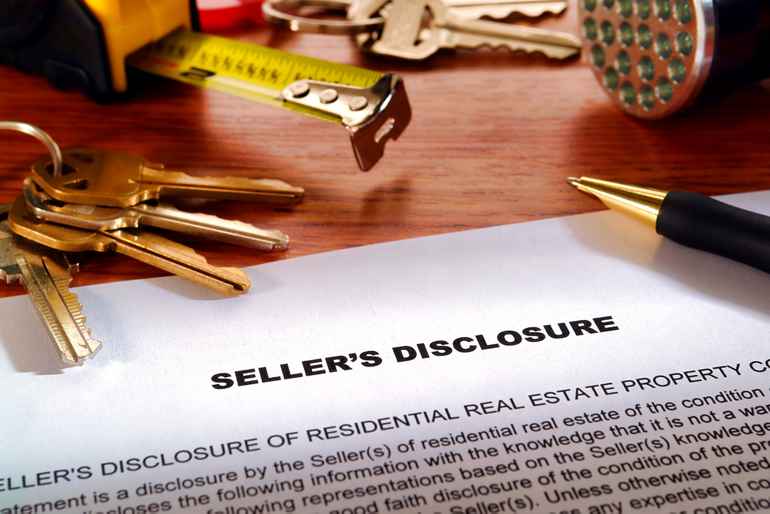
By Erin Rohan Smith
Many years ago real estate in Florida was like the Wild West and sellers were able to unload houses that had major construction defects to unsuspecting buyers with limited exposure. Times have changed and “buyer beware” no longer applies to the sale of residential real estate.
Florida law requires sellers to disclose any issues they know about that materially affect the value of a home or property. This requirement applies even if the buyer does not ask whether the seller knows about defects.
What has to be disclosed?
A seller must disclose any facts or conditions they know about that materially affect the value of the property. This means that they have to tell a buyer about any issue that would reduce the value of the property or make the property less desirable.
Some examples of issues that could materially affect the value of a property can include:
Past or present water leaks;
Roof defects;
Environmental hazards such as asbestos, lead, and mold;
Insect infestations, such as termites;
Problems with the electrical wiring;
Issues with the heating or air condition system;
Cracks in the foundation or other instabilities;
Disputes about a property’s boundaries; and
Problems with the title to the home or property.
However, a buyer still has to use their common sense and make a reasonable attempt to inspect the property. The seller is not obligated to disclose any defects that are obvious, such as a broken window or a hole in a wall. Only those issues known as “latent defects” must be disclosed. A defect that cannot readily be seen during a normal inspection is considered “latent.”
The most common latent defects we see in our practice involve mold and wood rot behind walls that results from long-term water intrusion. At The Robertson Firm, we have experienced construction experts who can assist you in investigating hidden or latent defects.
The biggest limitation on disclosures under Florida law is the requirement that the seller have actual knowledge of the issue at the time of the sale. Florida law also does not require the seller to engage in an exploration of the home to discover any issues or defects. Often, overcoming this limitation can be a huge hurdle. This is why, if you suspect you are the victim of a seller’s failure to disclose, it is crucial that you have an experienced construction law attorney on your side.
What should you do to avoid buying a house with latent defects?
At The Robertson Firm, we have handled numerous cases for people who thought they were purchasing the house of their dreams only to find out they were being saddled with someone else’s nightmare.
The home you are thinking about buying is a huge investment for the seller. This means that if the seller knows of issues that could cost him or her thousands, or even hundreds of thousands of dollars to repair or disclose, the temptation to hide these issues from buyers is very real. To protect yourself, you should contact a construction attorney who can arrange to have the home, which you are considering buying, inspected by an experienced construction expert.
Our experience has shown that even home inspectors can miss these issues because they are not necessarily looking for them or may not know what to look for. When making a major purchase, such as a home, it is crucial to have the right experts on your side.
What should you do if you believe you are a victim of a seller’s failure to disclose issues?
You should consult an experienced construction law attorney as soon as possible. Unfortunately, latent issues do not repair themselves, and usually tend to get worse over time. At The Robertson Firm, we will not only focus on the legal problem you have, we will also help you with the practical problem you are facing: fixing your home. Our comprehensive plan of action allows us to discover and assemble crucial evidence of sellers’ misconduct while at the same time allowing our clients to protect their homes from further damage. The evidence our experienced construction experts discover can help our clients recover the money they have lost due to a seller’s misconduct, while the repairs can allow our clients to return to the comfort of their own home.
Our senior attorney, Peter Robertson, is board-certified in construction law and board-certified in civil trial. Experience is the difference in maximizing our clients’ chances to minimize the financial damage that is sadly part of the nightmare of purchasing a lemon home. Mr. Robertson has also been licensed by the state of Florida as a General Contractor for over thirty years and has built numerous homes as a General Contractor.
What if the home or property is being sold, or was sold, “As-Is”?
Florida law does not provide an exception for a home or property that is sold “As-Is!” If the seller is aware of hidden issues that materially affect the value of the home, the seller must disclose them.
Although several real-estate contracts contain what is known as an “As-Is” Clause, that will not necessarily relieve the seller of their duty to disclose latent issues that they know about that materially affect the value of the property.
If you are unsure whether the real-estate contract you are signing, or have already signed, leaves you exposed to potentially inheriting the seller’s issues you should contact an experienced construction law attorney to review the contract.
Why chance it with what is likely the biggest purchase you will make?
